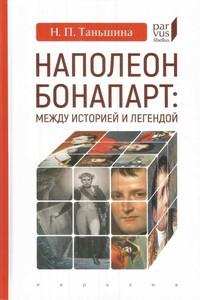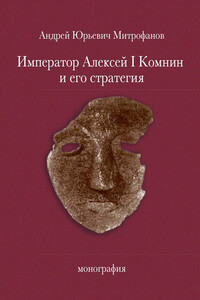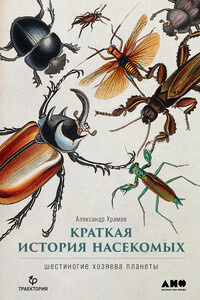Английский язык для специальных и академических целей: Международные отношения и зарубежное регионоведение. Часть 1 - [83]
If the benefits of leaving the single market are qualified, what of the costs? The price of exclusion is much smaller than when Britain joined in 1973. Tariff barriers across the world have been steadily lowered in trade deals brokered by GATT and its successor, the WTO. If import tariffs are weighted by the volume of trade in each product, the average faced by exporters from outside the EU into the single market has fallen to around 3%. Exporters routinely have to absorb cost increases of this size caused by a surge in the oil price or a jump in the exchange rate.
The Reader
Even so, the impact on industries such as food and textiles, where tariffs are much higher than the average, would be far from mild. British dairy exports would incur an import tax of 55% to reach the EU market, with tariffs on some items of more than 200%. Cheddar cheese would face a tariff of €167 per 100kg; the mark-up on Stilton would be €141. Average tariffs on clothing would push up their price in European markets by 12%.
Parts of Britain's car industry would move out. British-based producers would face a 4% tariff on car-equipment sales to the EU, and there would be pressure to impose tariffs on components imported from it. Factories owned by carmakers with plants and supply chains in other parts of the EU would be most at risk. Vital car components might be held up by customs as they leave the continent. A cheap pound and a flexible workforce may not be enough to keep GM in Britain, for instance, even though it sells many cars there.
The calculation would be slightly different for other carmakers. Only a small fraction of the 300,000 cars Jaguar Land Rover makes in Britain are destined for the EU market. A lot of Minis, made in Britain by BMW, are also sold outside Europe, where they attract an import tariff anyway. Much of what distinguishes a Jaguar from a Mercedes is that it is designed and made in Britain (as are lots of components). There would be little benefit, but huge costs to the brand, in shifting production elsewhere. Japanese carmakers would suffer: most of their British output is sold in the EU, says John Leech of KPMG, a consultancy. But they cannot easily switch production to continental factories, and many of their supplies come from Japan. They would stick around longer than many think.
Over time, though, the general drift of business investment would be away from Britain and towards the continent. That goes for finance, too. If London wants to be the regional hub for trading China's currency, it will need to retain its position as the main centre for settling trades of cash and derivatives in euros. Some in Europe resent this: the governor of France's central bank complained this week that euro deals should be done in euroland. Without the shield of single-market rules, London could lose out to rival EU centres.
Financiers from today's rising economic powers, in Asia and Latin America, are keener on access to a European market of 500m than on the light regulation that drew American banks to London in the 1950s and 1960s. TheCityUK, a lobby group, studied 147 siting decisions between 2006 and 2012. It found that more than two-fifths of finance firms gave access to European markets as a core reason for choosing London. Although the single market in financial services is still a work in progress, “passporting rights” entitle investment firms, banks and insurers based in Britain to establish branches or provide services throughout the EEA.
Aerospace is another industry that relies on frictionless trade with the rest of the continent. Britain has the world's largest industry outside America, but it would lose ground to France. The high-tech bits of production, such as the making of carbon-fibre wing spars, could not speedily be replicated elsewhere. But suppliers of basic parts, such as metal brackets, would be vulnerable. Big manufacturers like Airbus prefer to keep supply chains simple. They might sponsor entry by new suppliers in the EU to avoid a customs barrier.
The Reader
These reallocations of fixed capital would take years or decades. By contrast, Britain and its erstwhile EU partners would have to decide quickly how people on the wrong side of newly erected barriers to the free movement of labour should be treated. Around 2.3m people from EU countries were living in Britain in 2011, up from 1.1m in 2004; around 1.7m Britons have gone the other way. The rights of residency for such migrants would no longer be automatic. Forced repatriation would be damaging to all countries.
The simplest solution would be to offer citizenship to all those resident in Britain at a particular date, in return for a similar offer to Britons living in other parts of Europe. Anticipation of such an amnesty would spur a rush to and from Britain in the run-up to its exit. As the drawbridge eventually rose, businesses would suffer. London's growing tech cluster, as well as the City, relies heavily on the free flow of young workers from other parts of Europe.

Наполеон притягивает и отталкивает, завораживает и вызывает неприятие, но никого не оставляет равнодушным. В 2019 году исполнилось 250 лет со дня рождения Наполеона Бонапарта, и его имя, уже при жизни превратившееся в легенду, стало не просто мифом, но национальным, точнее, интернациональным брендом, фирменным знаком. В свое время знаменитый писатель и поэт Виктор Гюго, отец которого был наполеоновским генералом, писал, что французы продолжают то показывать, то прятать Наполеона, не в силах прийти к окончательному мнению, и эти слова не потеряли своей актуальности и сегодня.

Монография доктора исторических наук Андрея Юрьевича Митрофанова рассматривает военно-политическую обстановку, сложившуюся вокруг византийской империи накануне захвата власти Алексеем Комнином в 1081 году, и исследует основные военные кампании этого императора, тактику и вооружение его армии. выводы относительно характера военно-политической стратегии Алексея Комнина автор делает, опираясь на известный памятник византийской исторической литературы – «Алексиаду» Анны Комниной, а также «Анналы» Иоанна Зонары, «Стратегикон» Катакалона Кекавмена, латинские и сельджукские исторические сочинения. В работе приводятся новые доказательства монгольского происхождения династии великих Сельджукидов и новые аргументы в пользу радикального изменения тактики варяжской гвардии в эпоху Алексея Комнина, рассматриваются процессы вестернизации византийской армии накануне Первого Крестового похода.

Виктор Пронин пишет о героях, которые решают острые нравственные проблемы. В конфликтных ситуациях им приходится делать выбор между добром и злом, отстаивать свои убеждения или изменять им — тогда человек неизбежно теряет многое.

«Любая история, в том числе история развития жизни на Земле, – это замысловатое переплетение причин и следствий. Убери что-то одно, и все остальное изменится до неузнаваемости» – с этих слов и знаменитого примера с бабочкой из рассказа Рэя Брэдбери палеоэнтомолог Александр Храмов начинает свой удивительный рассказ о шестиногих хозяевах планеты. Мы отмахиваемся от мух и комаров, сражаемся с тараканами, обходим стороной муравейники, что уж говорить о вшах! Только не будь вшей, человек остался бы волосатым, как шимпанзе.

Настоящая монография посвящена изучению системы исторического образования и исторической науки в рамках сибирского научно-образовательного комплекса второй половины 1920-х – первой половины 1950-х гг. Период сталинизма в истории нашей страны характеризуется определенной дихотомией. С одной стороны, это время диктатуры коммунистической партии во всех сферах жизни советского общества, политических репрессий и идеологических кампаний. С другой стороны, именно в эти годы были заложены базовые институциональные основы развития исторического образования, исторической науки, принципов взаимоотношения исторического сообщества с государством, которые определили это развитие на десятилетия вперед, в том числе сохранившись во многих чертах и до сегодняшнего времени.

Эксперты пророчат, что следующие 50 лет будут определяться взаимоотношениями людей и технологий. Грядущие изобретения, несомненно, изменят нашу жизнь, вопрос состоит в том, до какой степени? Чего мы ждем от новых технологий и что хотим получить с их помощью? Как они изменят сферу медиа, экономику, здравоохранение, образование и нашу повседневную жизнь в целом? Ричард Уотсон призывает задуматься о современном обществе и представить, какой мир мы хотим создать в будущем. Он доступно и интересно исследует возможное влияние технологий на все сферы нашей жизни.